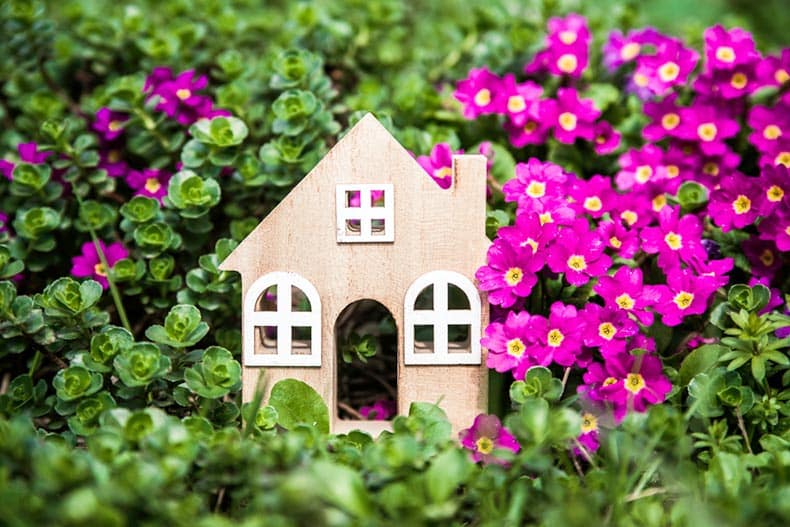At one point or another, most active adults come to realize that they have an oversized home with too many rooms lined with knick-knacks, storage spaces stuffed with holiday decorations and keepsakes, and garages filled with tools and outdoor equipment. All of these possessions can become cumbersome to care for and keep.
Downsizing is one of the most effective ways to simplify life. While the most common conception of downsizing refers to moving from a larger house into a smaller home, downsizing can come in many forms. When people move into smaller homes, they have to reduce their possessions and change their lifestyle to fit into the new place. This means downsizing is more than moving into a smaller home—it involves downsizing all of your possessions and even changing your way of thinking.
There are countless books and television shows about downsizing because it can be a truly life-changing process. To help get you started, we put together a guide to downsizing more than your home. Below, you can find some ideas for how to downsize different aspects of your life.
The Benefits of Downsizing

Downsizing can ultimately lead to a more carefree lifestyle that focuses more on experiencing life and less on cleaning and taking care of possessions. Everyone can streamline their lives by removing the clutter and shrinking the number of responsibilities that come with having multiple cars or a big home. Fewer responsibilities means less stress which better enables an active physical and social lifestyle. Having a cleaner and simpler house can also reduce stress and make your home a more positive space to live in.
For active adults moving into a smaller home, downsizing before the move will help save time and money on movers. Although it’ll take some time to go through your possessions and pick out what to sell or get rid of, downsizing can save a lot of effort in terms of packing boxes, moving them, and then having to unpack them in the next place. The same goes for any furniture or vehicles that would make moving more stressful than it needs to be.
Emotional and lifestyle benefits aside, downsizing can also help active adults save money and even get out of debt. By moving into a smaller home, more often than not, homeowners will have money left over from selling their previous, bigger home to spend on whatever they need or want to. Living life with a smaller house payment, fewer cars, and lower utility bills can help save money. Also, selling unwanted or unused items could also put some cash in your pocket that you didn’t have before.
Decluttering the Little Things

Accumulating junk over the years naturally happens as a homeowner. Certain people like to decorate more than others, but some active adults can have artwork or photographs hanging on nearly every wall and an item on every surface. Homeowners may have entire display cabinets full of china or trinkets that serve no utilitarian purpose other than decorative value. Other items may be useful, like kitchen utensils, but when they get old and need to be replaced, some people forget to throw away the old ones. This leads to having duplicate items and more and more clutter, which is why it’s important to declutter the small things.
When downsizing your home, your possessions, and your life, you have the power to determine what to keep and what to discard. When deciding what to part with, consider whether you can live without certain items in your vision of the future. Your new home can certainly have decorations and things that make you happy, but you most likely don’t need to keep every single thing, and duplicate items are more common than you might know.
Go through each room in the home and take a concentrated look at every item to determine what you really want to keep and what you can part with. Look for any items in closets, on shelves, on the walls, or in drawers that could be sold or donated, and keep an eye out for any duplicate items. Clothes and jewelry commonly accumulate in closets and dressers, and these items are ideal candidates to be donated. Doing so will undoubtedly free up a lot of space.
Since all of the little things eventually add up, the process of decluttering can put a big dent in downsizing your life. The KonMari Method, developed by cleaning consultant Marie Kondo, offers additional thorough guidelines to reduce the number of items in your life.
Decluttering the Big Things
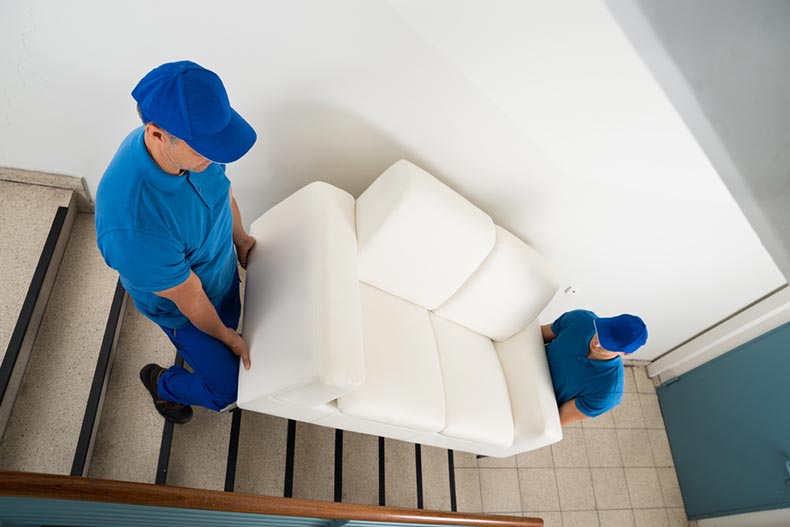
For active adults who plan to move into a more compact home, downsizing furniture can seem like a big task. For example, if your current home has a den or a home office that your new home does not include, you may have a room or two worth of furniture to downsize. The new place may also not have room for the sectional couch that fills your current living room or for the extra TV in the basement.
Aside from downsizing furniture that will entirely not be needed in the next home, think about literally reducing the size of the furniture that will fill the new rooms. There may not be room for a large dining room table if active adults are moving somewhere with only a breakfast nook, and transitioning from a large sectional to a smaller sofa may be ideal.
There are several options to downsize large furniture items, one of which is to sell them. Many apps and websites offer the opportunity to post items for sale along with pictures, and sellers can often negotiate with buyers on coming to pick up the item as well as the selling price. Certain charities and junk removal services will also come straight to your doorstep to pick up furniture, which may be a good option if you plan on parting ways with a lot of pieces.
Downsizing Your Car

Other than a home, vehicles are arguably the next most expensive responsibility that homeowners must take care of. Cars and trucks need routine maintenance to stay road-ready, having more than one vehicle raises the price of car insurance premiums, and cars can take up a lot of real estate in a garage or driveway. If active adults decide to move into a home such as a high-rise condo with a parking garage, they may even have to pay for additional parking spots for additional cars.
Consider downsizing the number of vehicles in your household. Think about downsizing to one car to fit your needs and goals for the future. Active adults can also wind up with more than one vehicle due to partners having two separate jobs or due to leisure options, like sports cars, boats, or RVs. Think about whether the extra car is necessary and whether having it is worth the stress of taking care of another automotive mouth to feed.
Even if homeowners only have a single vehicle, downsizing the size of that vehicle could save money and add convenience to everyday life. Larger vans and trucks that were once used to haul kids or materials for a job may no longer be necessary. Look into getting a compact car to save money at the pump and to save space in a garage or driveway.
Clearing Out the Garage
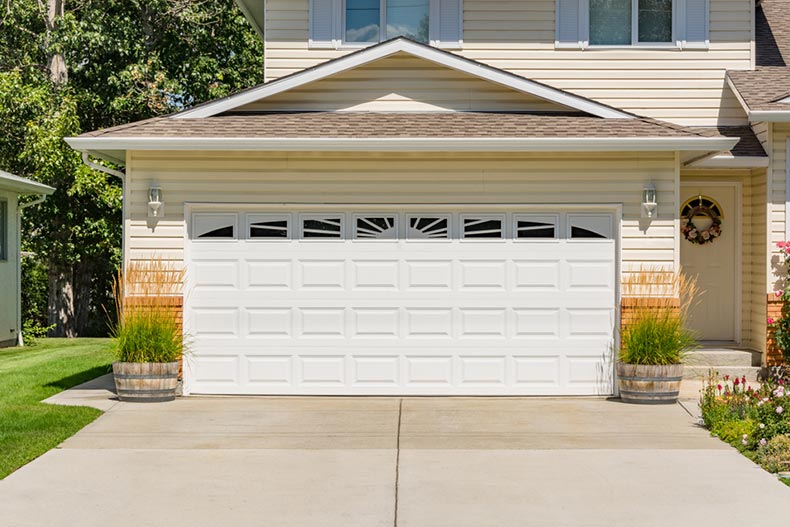
In addition to cars, the garage can contain many items that may not be needed if active adults downsize their home, especially if they choose to move into a maintenance-free house or a neighborhood with a homeowners’ association (HOA) that takes care of exterior maintenance and landscaping.
When downsizing vehicles, active adults should also consider whether any lawn equipment or tools need to continue to take up more space than they need to. This includes lawn mowers, leaf blowers, weed whackers, edgers, tree trimmers, gardening supplies, seeders, or any other equipment that has accumulated over the years. Even if homeowners are not moving, it may be time to weed out any outdoor equipment that may have been bought for a one-time project or that is not used on a regular basis.
Recreational items also accumulate in the garage, such as bicycles, sports equipment, and camping materials. Outdoor hobbies are great ways to spend time, but some things may just be taking up space nowadays more than being used, like that old canoe that hasn’t seen water in years or that bag of golf clubs in the corner covered in dust. Many homeowners may also have storage in the garage, like holiday decorations, that are forgotten about for most of the year. All in all, there could be a wide assortment of bulky items in the garage that can be downsized, sold, or donated to reduce the clutter.
Sentimental Items
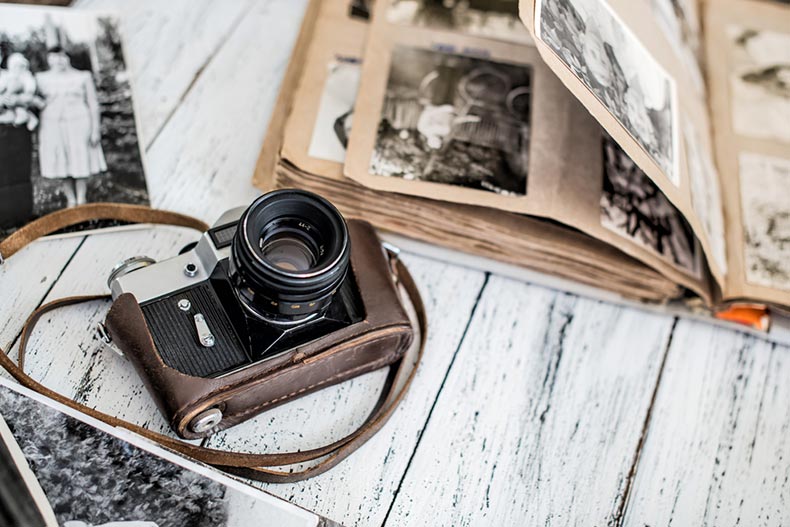
The hardest part of downsizing can sometimes involve going through the items that hold emotional value. Certain possessions can feel like they hold more memories or sentimental value than ordinary household items, and this makes them much more difficult to consider letting go of. Whether it’s a keepsake from a trip or a family photo album, it may never seem like a good time to downsize certain items.
However, there may be ways to mediate the downsizing of sentimental possessions. One of these ways is to pass on heirloom items or photo collections to family members who will appreciate them. Active adults with children may consider gifting them with furniture or items that have been in the family for generations or perhaps a niece or nephew may enjoy a photo album of their parents or family. Sharing these items with family or close friends will feel good as well as declutter some space in your home. Remember that at the end of the day, these items are simply items, and the memories you have will always stay with you.
Downsizing Tools & Tips
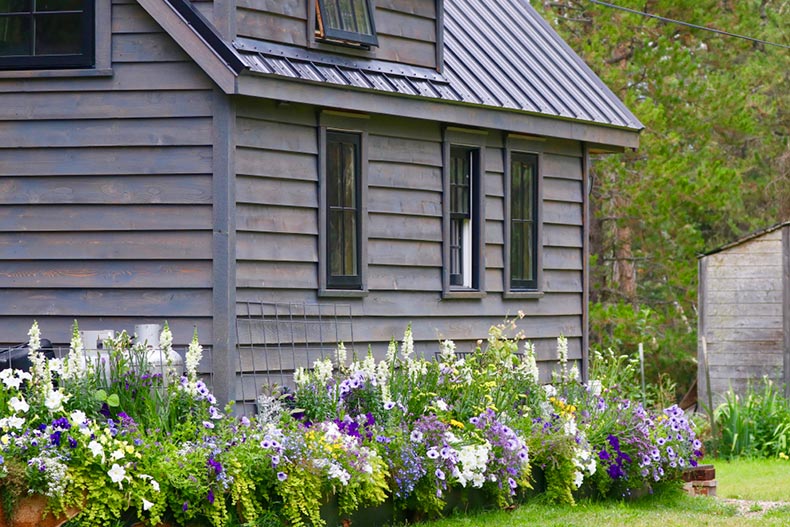
A good place to start when downsizing, whether you’re ready to downsize now or planning for the future, is to determine how much space your next home might have compared with your current home. This will help you determine which rooms will not transition over and which furniture will not fit. From there, try to meticulously go through your possessions and smaller items to thin out any and all extraneous possessions that will not be worth moving.
Homeowners can sell, donate, or throw away the things that they wish not to keep. There are several apps and websites useful for selling items, such as Letgo, OfferUp, and Facebook Marketplace. Selling your belongings will provide some extra spending money while also effectively downsizing. Check in with your local Salvation Army, Goodwill, or other charity organizations to donate other items. There are other services that will come and pick up donations right at your front door, saving time and energy.
Active adults that decide to move into a smaller home or not can still benefit from downsizing. The process of shedding extraneous possessions can be relieving because it reduces stress and allows for a simpler lifestyle. Downsizing can be profitable and cost-efficient while also improving your quality of life.

